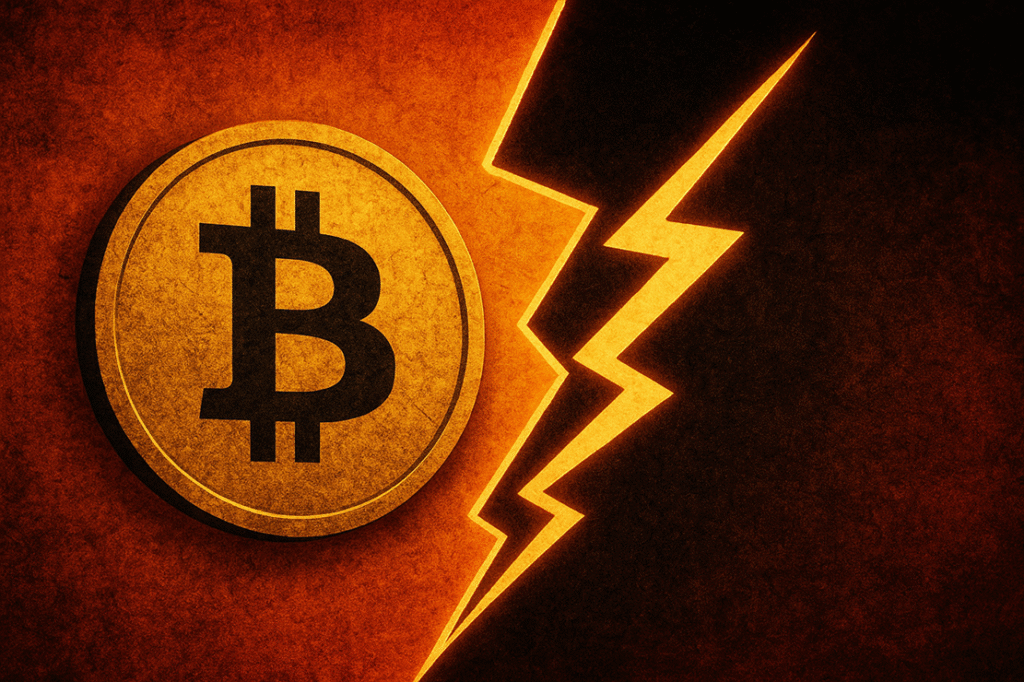The world of Bitcoin often witnesses intense debates and discussions, especially when proposed changes stir the community. Recently, a new proposal has sparked one of the most heated arguments since the blocksize debates. This proposed “temporary” fork seeks to regulate non-monetary data on the Bitcoin network, causing a divide among developers and enthusiasts. The discussion echoes past conflicts over Bitcoin’s identity as a purely monetary system versus a broader data network. As the debate unfolds, it underscores the ongoing challenges of balancing innovation with the foundational principles of Bitcoin.
The Controversy Surrounding Bitcoin’s Proposed Temporary Soft-Fork
### Navigating the Proposed Soft-Fork’s Implications
On October 24, 2025, a proposal titled “Reduced Data Temporary Softfork” was submitted to the Bitcoin Improvement Proposals repository. The proposed change aims to limit the amount of arbitrary data stored on the blockchain. This proposal cites an idea from Luke Dashjr, a notable Bitcoin developer, framing it as a temporary measure until more permanent solutions can be developed. The pull request, although yet to be officially numbered, has become widely known as “BIP-444.”
### The Core Debate: A Monetary Network or Data Transfer Protocol?
The heart of the debate traces back to a crucial question: Should Bitcoin remain strictly a monetary network, or is there room for it to evolve into a broader data transfer protocol? Proponents of the proposal argue that curbing arbitrary data ensures Bitcoin remains purely financial and avoids unwanted scrutiny. They stress that unrestricted data creates risks of centralization and potential liability if illegal content proliferates. As one contributor noted, node operators should not be forced to host arbitrary data merely to participate in the network.
### Technical Details and Community Backlash
The proposal suggests binding the temporary rule change to specific block heights to ensure it expires naturally. Yet, its technical scope has raised eyebrows, with critics arguing that targeting OP_RETURN and tapscript indicates a broader agenda. This has led to concerns about potential censorship and double-spend risks, with critics warning of scenarios where malicious actors could embed illegal content to cause network disruptions.
### Legal and Ethical Concerns
The controversial nature of the proposal has led to accusations of using legal threats to force its adoption. Some see it as an infringement on the network’s decentralization ethos, warning that such changes could set dangerous precedents. The potential for economic incentives to arise from these changes, leading to network instability, has further fueled the debate.
### Community Reactions
Notable figures in the Bitcoin community, like cryptographer Peter Todd and Galaxy’s head of research Alex Thorn, have voiced strong opposition. They argue that the proposal undermines Bitcoin’s core principles and could lead to unwanted censorship and instability within the network.
### Future Implications for Bitcoin
If implemented, the proposal could significantly impact protocols that rely on using blockchain space for non-monetary data storage, such as Ordinals-style inscriptions. Critics argue that labeling such activities as “abuse” is misleading and that any fork, temporary or not, should avoid setting precedents that threaten fund security or transaction legitimacy.
### Current Market Context
Amidst the turmoil of this proposal, Bitcoin continues to experience fluctuations. At the time of publication, BTC trades around $115,743, reflecting the market’s complex dynamics.
### Frequently Asked Questions
What is the purpose of the proposed temporary soft-fork?
The proposed temporary soft-fork aims to limit the storage of arbitrary data on the Bitcoin blockchain, helping maintain its primary function as a monetary network. It seeks to reduce legal liability for node operators and prevent Bitcoin from becoming a de facto data storage network.
How does the proposal affect Bitcoin’s decentralization?
Critics argue that the proposal could compromise Bitcoin’s decentralization by enforcing changes under the threat of legal implications and enabling potential censorship, which contradicts the network’s ethos of neutrality and freedom.
What are the potential risks associated with the proposal?
The proposal could introduce risks such as censorship-based attacks where illegal content forces re-organization of the blockchain, potentially creating economic incentives for malicious actors. There’s also concern about setting a precedent where forks could lead to transaction invalidation and fund seizures.
What should Bitcoin users consider before supporting this proposal?
Bitcoin users should evaluate the proposal’s potential impact on network integrity, security, and decentralization. It’s crucial to consider both the technical merits and the broader cultural and ethical implications before forming an opinion.
This comprehensive guide explores the complexities of Bitcoin’s technological and cultural landscape amid the proposed changes. As the debate evolves, understanding the implications of such proposals becomes increasingly vital for stakeholders.

